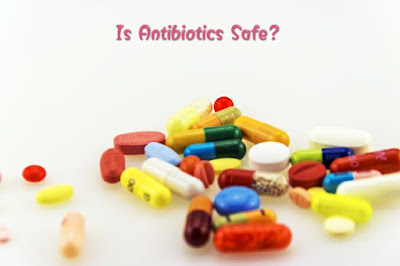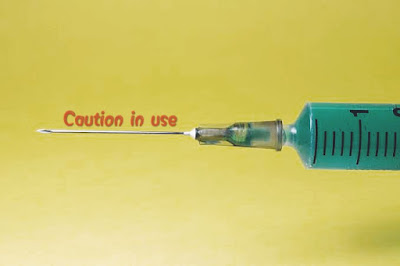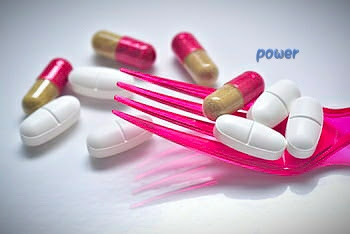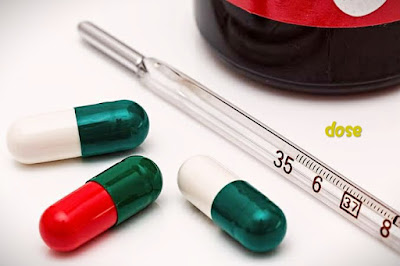Is Antibiotics Safe?
HELLO FRIENDS,
Today's topic of our discussion is necessary to be discussed because consumption of antibiotics increases day by day. So let us know about antibiotics and the consumption of antibiotics safe or not.
About:
In common use, an antibiotic or antibiotic is a substance or compound that kills or inhibits the growth of bacteria.
Antibiotics are a broad group of antimicrobial compounds, which are used by microscopes, including fungi and protozoa.
One day we all fall prey to colds, throat infections, viral, pneumonia and various stomach related diseases due to bacterial or fungal infections present in the environment.
Although doctors give medicines to treat these diseases, but when the situation does not improve then there is a need to stop or eliminate the growth of these diseases i.e. bacteria.
For this purpose, the patient is given antibiotics or antibacterial medicine, which are effective in treating various diseases caused by bacterial infections.
Caution in use:
Due to incorrect or excessive use of antibiotics, cases of antibiotic resistance are increasing worldwide, which is a matter of concern.
Many doctors give antibiotics early to the patient without properly examining the disease, leading to the problem of super bug.
These antibacterial drugs do not affect the bacteria that attack the patient's health.
Due to this,
cases of bacterial infections are increasing and due to lack of proper medicine for them, they are becoming a serious health hazard.
powerful:
If seen, antibiotic medicine is very powerful medicines, which fight bacterial or fungal infections in our body.
These bacteria attack our white blood cells and multiply and multiply there in about 16 minutes.
These soon weaken our immune system, causing us to fall prey to many diseases.
If these bacteria or fungi are not eradicated, then they can multiply and worsen our situation.
Antibiotic medicine works in two ways -
one -prevents bacteria from growing or multiplying in different organs of the body and the other eliminates them.
The patient can take these antibiotic medicine in three ways: oral, in tablet, capsule or syrup form
secondly- as injection and thirdly through intra-venous drip. These medicines are given based on the condition of the patient.
Like if he has viral infection then anti viral, fungal infection if anti fungal, bacterial infection if anti bacterial.
Need patient:
As far as taking antibiotic medicine is concerned, first of all it should be checked whether the patient really needs it or not.
Taking these medicines without medical examination and without thinking can be harmful.
Many times diseases like viral, seasonal fever, cold and cold do not require any antibiotic medicine, paracetamol or anti-allergic medicine cures the patient in 2-3 days.
But if he gets an infection like fever with chest tightness, persistent cough, phlegm and bleeding then the doctor has to check up and give antibiotics.
Similarly, if a patient has a bacterial infection in his throat and he gets cured within a week of giving antibiotic medicine, then after 10-15 days, if he has a throat infection again, it is not necessary that the infection is due to bacteria and this time He also needed antibiotic medicine.
Therefore, medicine should be taken only after examination by a doctor.
What is the dose:
The dose of these antibiotic medicine is determined according to the weight, age and illness of the patient.
They are usually given as 15 mg per kilogram of weight, such as a person weighing 60-65 kg, then they are given about 1000 mg or 1 gram of antibiotic daily.
This amount of antibiotic is more or less depending on age. For example, children under 12 years are given approximately 125 mg to 250 mg antibiotics.
About 1 teaspoon or 5 ml is given as an antibiotic medicine syrup to a very young child. One teaspoon of these syrup made by the pharma company contains about 125 grams of medicine.
It is necessary to complete the course
Depending on the bacterial infection, the patient is given a 3 to 5 day course of antibiotics.
The patient mostly has to take these medicines at an interval of 8–12 hours.
But in some diseases like chest infection, it is recommended to take these medicines once or twice in 24 hours.
Despite the improvement in health in 2-3 days, it is necessary for the patient to complete a course of antibiotic medicine, otherwise there is a possibility of bacterial resistance and the condition of super bugs can occur.
That is, the immune system of the patient may deteriorate due to not being fully recovered and these bacteria can attack the patient again after a few days.
In case of super bugs, heart problem can be very troublesome for a patient struggling with serious diseases like cancer.
Keep these things in mind:
Many times, the patient is unable to take medicine by the rule or forgets to take medicine due to any reason.
In this case, the patient should skip that dose and continue the prescribed schedule. Double dose should not be taken next time.
Taking an extra dose or an overdose can also have many adverse effects on the patient's health.
In such a situation, there is a possibility of vomiting, nausea, stomach pain, diarrhea, dizziness, skin rashes, itching, allergies etc.
Apart from these, giving antibiotics to pregnant women, lactating women and people suffering from serious diseases is not good.
Due to this, there is a possibility of bleeding, miscarriage or there is a possibility of the development of the unborn baby in the fetus or malformation.
Lactating mothers may have difficulty feeding, which affects the baby.
The immune system of the patient suffering from serious diseases is already weakened, these antibiotics remain at equal risk of deteriorating his health.
Most antibiotics should not be taken on an empty stomach.
It is generally believed that taking medicines on an empty stomach can quickly lead to seizures, but this is not the case with antibiotics.
They are prone to stomach problems. There is a possibility of blisters in the food pipe, stomach irritation, vomiting, nausea.
Therefore, it is better to take antibiotics after meals or with food.
Many types of medicines:
There are more than 100 antibiotics available in medical science today, which are quite successful in their purpose.
These drugs can be broadly divided into six groups. The oldest of these antibiotics is penicillin, which is less prevalent nowadays.
1. Penicillin (Ampicillin and Amoxicillin) - skin, chest, urinary tract infection
2. Cephalosporin (cephalexin) - septicemia, meningitis infection
3. Aminaglycosides (Gentamicin, Tobramycin) - ear and eye infections
4. Tetracycline (tetracycline, doxycycline) - skin infection
5. Macrolides (erythromycin, clarithromycin) - lung and chest infections
6. Fluoroquinolones (cyprofloxacin, levofloxacin) - breath and UTI related infections
Myth and reality:
0 It is generally believed that antibiotics will have to be given in case of fever or colds. It is wrong to think that viral infections are cured only by antibiotic medicine.
In 70 percent of cases, they are cured with other medicines.
0 Taking antibiotics causes stomach upset and affects the kidneys.
Different types and different amounts of antibiotics are given for each disease.
Their careful intake does not cause any such problem.
0 It is wrong to think that taking high doses of antibiotics will provide quick relief. This may cause the patient to suffer many ill effects.
In daily running life, we often take any antibiotic medicine without consulting the doctor in case of headache, stomachache or fever.
But doctors have warned of serious stomach diseases like diarrhea if excessive antibiotics are consumed.
Dr. Satish Kaul, Senior Consultant, Internal Medicine, Naraina Super speciality Hospital said, "Excessive antibiotic intake can prove harmful for you.
It can cause you stomach problems like diarrhea. Taking the wrong antibiotic can also become a problem. If you are allergic to that medicine. "
He went on to say, "Incorrect or excessive use of any antibiotic can cause a lot of problems, such as not being able to cure an infection too quickly.
This can also lead to the development of antibiotic resistant organs. If you don't have any If you keep taking antibiotics continuously, this risk can increase greatly. "
Dr. Satish Kaul said,
"Presently antibiotic resistance has become one of the biggest health problems in the world. We should tell more and more people about the correct use and function of antibiotics, so that the diagnosis of this problem Possible. We need to take this problem seriously. "
According to the World Health Organization (WHO), antibiotics are medicines used to prevent and treat virus infection.
Antibiotic resistance occurs when bacteria change their appearance in response to the use of these medicines.
According to the WHO, "Taking antibiotics without need increases antibiotic resistance, which is one of the greatest threats to global health.
Prolonged antibiotic resistance infection can lead to hospitalization. At the same time, the patient may also die if the amount for treatment is high and the disease is serious. "
According to the WHO, antibiotic resistance infection can affect people of any age group in any country.
In addition, when bacteria become resistant to antibiotics, infection with mangoes also cannot be treated.
Dr. Arvind Agarwal, Senior Consultant, Internal Medicine, Sri Balaji Action Medical Institute, said,
"Nowadays, in case of headache, stomachache or fever, we take any antibiotic medicine without consulting the doctor. Sometimes we do antibiotic without any need. Taking microbes or bacteria of your body changes themselves without needing and regularly taking antibiotics. That antibiotics can not hurt them. "
These bacteria change themselves in such a way that the removal of medicines, chemicals or infections They do not have any effect at all or have little effect on any treatment. "








You doing great work brother 👍
ReplyDeleteUseful
ReplyDeleteGood information
ReplyDeleteVery informative blog post
ReplyDeleteGood info.
ReplyDeleteNice work
ReplyDeleteGreat info
ReplyDeleteBest
ReplyDeleteGreat job
ReplyDelete👍👍
ReplyDelete👍👍👍
ReplyDeleteGood keep it but
ReplyDeleteVery nice
ReplyDeleteGood information 😊
ReplyDeleteWelldone.........nice information keep it up👌
ReplyDeleteBest information
ReplyDelete🙏🏻
ReplyDeleteHelpful content in simple language..
ReplyDeleteEasy to understand.. 👌🏻👌🏻
Very informative ��
ReplyDelete